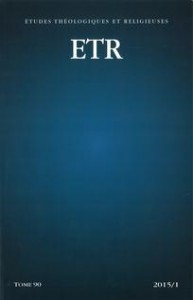Le kitsch a été défini par Milan Kundera comme un « accord catégorique avec l’être ». Dans cette contribution, Benoît Mathot établit la généalogie de cette notion à partir des travaux d’Hermann Broch, essayiste et dramaturge autrichien, avant d’en préciser les implications philosophiques chez l’écrivain tchèque. Il y examine la façon dont le kitsch peut contribuer à un éclaircissement de la situation religieuse actuelle, qu’il caractérise à partir de l’analyse engagée par le philosophe Slavoj Žižek. C’est l’occasion pour l’auteur d’explorer de manière critique la notion de kitsch et de poser quelques jalons en vue d’une dynamique chrétienne de la foi.
Une partie substantielle du présent article a fait l’objet d’une conférence lors du 81e Congrès de l’ACFAS (Association francophone pour le savoir) qui a eu lieu à l’université Laval, sous le titre : « Existe-t-il un kitsch théologique ? ».
Kitsch was defined by Milan Kundera as « categorical agreement with being ». In this contribution, Benoît Mathot explores the genealogy of kitsch with the help of the Austrian playwright and essayist Hermann Broch. He then explores the philosophical implications of this notion for Kundera, and finally examines how kitsch may contribute to a clarification of the current religious situation, as described with the help of the philosopher Slavoj Žižek. This critical exploration of kitsch allows the author to suggest some elements of what would be a Christian dynamics of faith.
p. 67-83
Auteur
MATHOT Benoit
Benoit MATHOT enseigne la théologie fondamentale à la Facultad de Ciencias Religiosas y Filosóficas de la Universidad Católica del Maule (Talca, Chili) et dirige le Centro de Investigación en Religión y Sociedad (CIRS-UCM).
